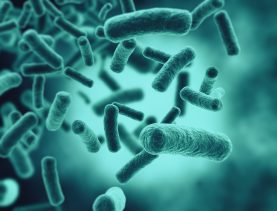Bugs and the Brain
Dr. Tejinder Ghag, ND
Probiotics. Have you been hearing that word everywhere? It’s because in the last few years, more and more research has come out to highlight the importance of our gut bacteria and the role they play in our overall health, including our mental health.
Where do these bugs come from?
Your first exposure to healthy bacteria is at birth, if you had a vaginal birth, as you emerge from the canal, you are exposed to your mother’s bacterial flora. It is common to see certain illnesses such as eczema and allergies in children who were born via C-section and did not have exposure to their mother’s vaginal flora. As you grow older and expose yourself to different environments and foods, the bacteria grow and diversify. In fact, the number of bacteria in your body outnumber your own cells! They are responsible for maintaining homeostasis, or balance, within your body and play a key role in immunity, digestion, and the nervous system.
How can something in the gut be related to the brain?
Hippocrates put it best when he stated that “All disease begins in the gut”. The connection starts with the vagus nerve, the longest cranial nerve that originates in the brain stem and extends down to your abdomen. It is this nerve that is stimulated when you feel anxious or nervous about an exam or a presentation and you get the sensation that there are ‘butterflies in your stomach’.

Depression and your gut
Certain bacteria have been shown to release chemical messengers that send messages to the brain through this nerve. In fact, specific strains of bacteria, such as Bifidobacterium infantis, produce serotonin through the conversion of tryptophan. Does serotonin sound familiar? It is known as one of the ‘happy hormones’ and is the target for many antidepressants, specifically selective serotonin reuptake inhibitors (SSRIs).
Depression is commonly seen as a ‘chemical imbalance’ therefore SSRIs are commonly prescribed to help correct that balance. They work by blocking the uptake of serotonin by receptors, so it is more available to your brain. However, did you know that 80-90% of serotonin is made in your gut? By focusing treatment on gut repair and replenishing the gut flora, significant changes can be seen in mood and depression scores.
The microbiome can be disrupted with antibiotic use, the standard Western diet (due to lack of food diversity), certain food allergens and external pathogens. All of these create havoc on the gut leading to either acute or chronic inflammation. With inflammation, the bacteria are not able to function properly and are not able to release the necessary chemical messengers to communicate with the brain thus you may be more susceptible to certain conditions such as depression.
How can we bring our bacteria back?
Probiotic supplementation, prebiotics, fermented foods, increased intake of fruits, vegetables and healthy fats and supplementation with gut healing products such as L-glutamine all play a role in helping create a balanced environment.
There are many different probiotic supplements on the market however sometimes certain strains are needed depending on what your body is going through. Consult with a naturopathic doctor to find an appropriate supplement regimen and an individualized diet plan to help you and your gut feeling it’s best!
* It is very important to keep in mind that depression can range from mild to major and sometimes antidepressants are necessary. Please consult with a naturopathic doctor or your healthcare provider if you are looking to add alternative therapies or wanting to come off your medication*







